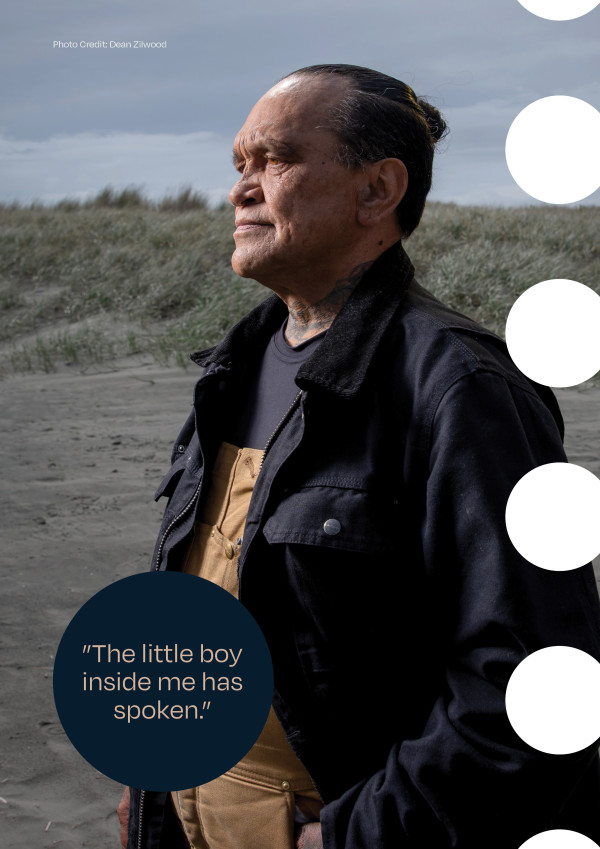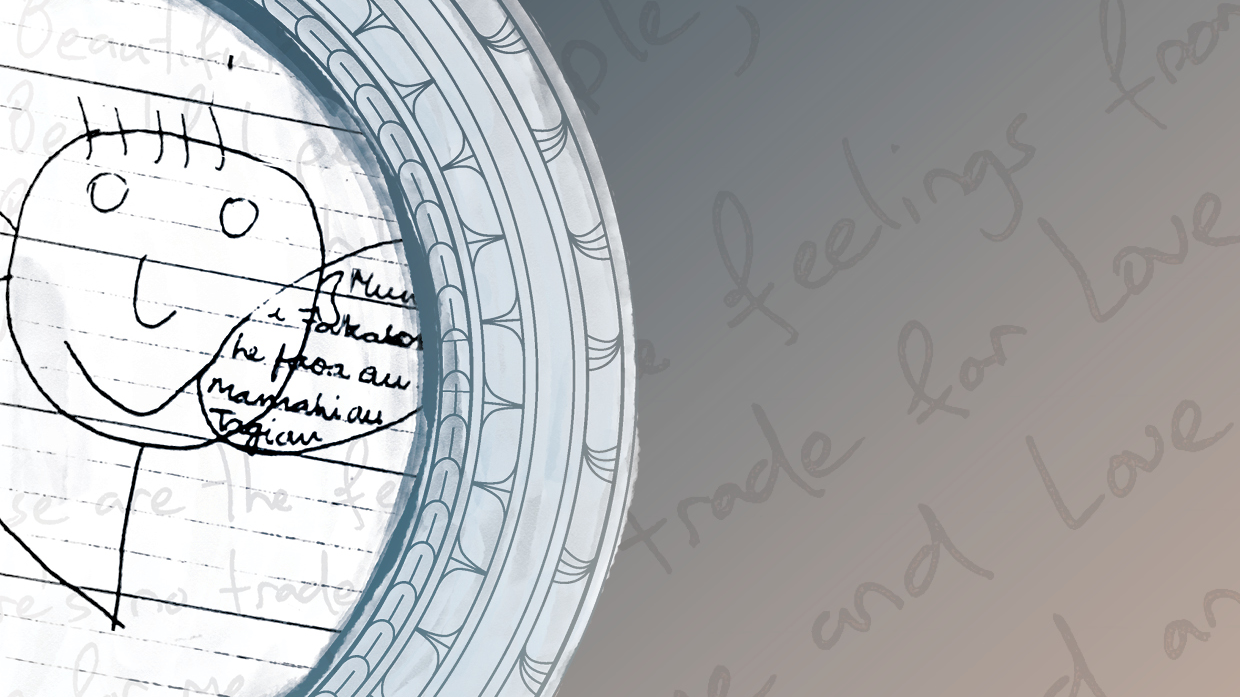Rangi Wickliffe
Name: Rangi Wickliffe
Age when entered care: Six
Age now: 61
Hometown: Te Puke
Time in care: 1967 - 1976
Type of care facility: Family Home – Papatoetoe Family Home; boys’ homes – Holdsworth School, Ōwairaka Boys’ Home, Hokio Beach School, Kohitere; hostels – Arohanui Hostel, Onehunga Māori Boys’ Hostel; psychiatric hospital – Lake Alice; borstal.
Ethnicity: Māori
Whānau background: Rangi has half-siblings from both parents – two sons and two daughters on his mother’s side and two sons and two daughters his father’s side. Rangi was the only child to go into care. Currently Rangi has one son and four grandsons. Rangi is very close with his mum; his dad is deceased. Rangi has a very supportive partner.
 Rangi Wickliffe
Rangi Wickliffe
When they told me I was going to Lake Alice, I thought I was going to a lake to go canoeing and fishing – I didn’t know I was being taken to a psychiatric unit. Nobody told me what was happening. I was only 10 years old.
My name is Rangi Wickliffe. I have been raped and sodomised and tortured.
I went into State care when I was six and I moved around 13 different foster homes, then to Ōwairaka Boys’ Home and Holdsworth School. In most places I was abused and raped.
When I arrived at Lake Alice they asked me if I wanted something to drink, and they gave me a cup of sweet tasting liquid. I found out later it’s called Largactil, which is used to treat behavioural disturbances, among other things. It knocked me out.
When I woke up I was in a villa with people asleep or lying on beds all around me. At that time Lake Alice didn’t have an adolescent unit so I was put into a villa with adults as well as other kids. Some of the adults were criminally insane. And that’s where the horror began.
On my first night in the villa I felt a heavy weight on my body. My pyjamas were ripped off and I was raped. I couldn’t see who did it to me because I was lying face down with my head held into the pillow while they raped me. They did it repeatedly for months. I complained to staff and I was given electric shocks as a punishment.
The electric shocks were pure and simple terror. You had up to seven children in a day room. Some were crying, screaming, scratching, banging their heads against the wall, urinating and defecating like little animals, whimpering, calling out to their mums and dads, and screaming. But some children just sat back on the chairs in total shock.
The pain from electricity surging through your head is indescribable, and so is the scream that comes out of your mouth. The terror was so intense that you lost all bowel control. I thought, if I bite harder on this rubber it won’t hurt so much; if I scream louder, they might stop – but it didn’t work like that.
Dr Selwyn Leeks asked me, while he was electrocuting me, “How do you feel?” Of course, being a young child with a rubber stopper in your mouth, you can’t answer. So he moved the electrodes from my temple to my jaw and said, “Yes, I think that’s the spot. I think I can make you scream louder”. And he did.
Once I escaped and ran away with another boy. We told the police they were hurting us, electrocuting us. They took us back and we got electric shocks as a punishment. Dr Leeks said to me, “I’m going to knock you out and this is how I’m going to do it, Rangi. See this little silver knob? That’s going to clean you out, you’re not going to feel a thing. Watch this”.
He banged a button, and I was out.
I woke up and I was lying face-down on the bed, tied down with leather strops. Another patient was there, so I asked him what happened – why was I tied up? He untied me, and some other patients told me I had been gang raped by up to eight adults who were criminally insane.
In the villa where I was placed, they had seclusion rooms – just a locked cell door with a tiny glass window on the front. You’re there, all alone, in a solitary confinement cell on a mattress with no water, no food, no light and nobody else. I was put into seclusion as punishment for kicking a ball next to a window, even though I didn’t break the window. I was in there for four days. Keep in mind that this was done to a 10-year-old child.
I got electric shocks frequently as a punishment – for getting a D in maths, for failing to eat my vegetables. This was a sustained attack on a small child while immersing him in rape. Blasting a child’s brain with high voltage enough to just about break your bones and expecting that child to have a normal life afterwards? That’s not going to happen.
The impact of Lake Alice was horrendous. Part of that impact is the spiralling behaviour of an emotionally disturbed young child as his problems spin out of control and into institutionalisation and incarceration. I’ve spent 10 years of my adolescent life in State care and 36 years of my adult life in prison. I have suffered severely from poor decision-making while I’ve been in the mindset of revenge for what has happened to me. The hate, the fury, and a burning desire for vengeance from a young teenager through to an adult – that has consequences.
My life is hell. I am constantly reminded of what happened to me. Every time I use the toilet I feel the scarring. Every time I have a shower I see the white marks and squiggly lines that come with unmodified ‘ECT’. When I hear children squealing in play, I am terrified. I try to make sense of why children scream like that when they’re happy. In my world, in Lake Alice children only screamed like that when they were being tortured.
I am triggered by noise, sound and smells, and I have to lock myself away from people. It is a huge burden to carry. I am 61 years old and I’ve lived a life of nightmares. I will suffer for the rest of my life. I will suffer because I don’t want my great grandchildren to suffer.
By telling my story I know I risk a lot – I am retraumatising myself. I was terrified of going to a hearing and saying what happened. Every part of me said no, don’t do it. But I have to. I have to for my family and for the men who find it very hard to describe and articulate what happened to them. Not all of us came out of this switched on, or so to speak.
My name is Rangi Wickliffe. I have been raped, I have been sodomised, I have been tortured. But the little boy inside me has spoken.

